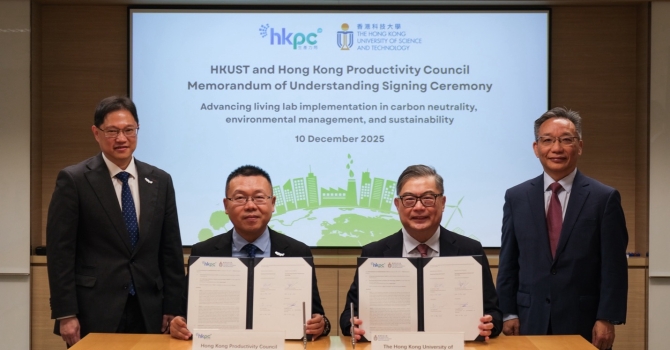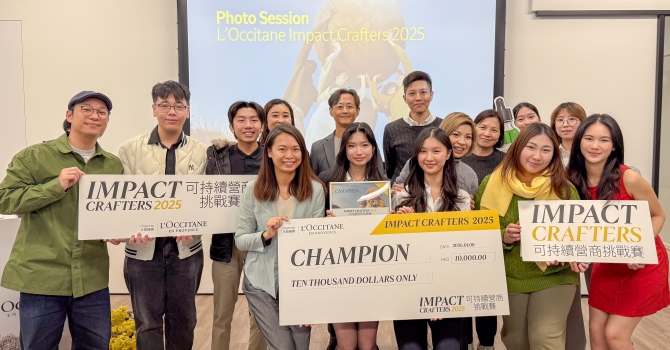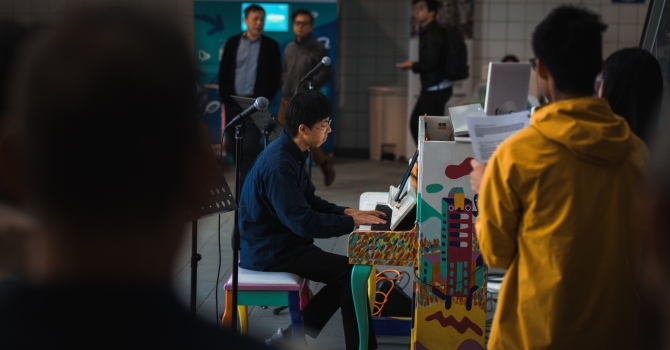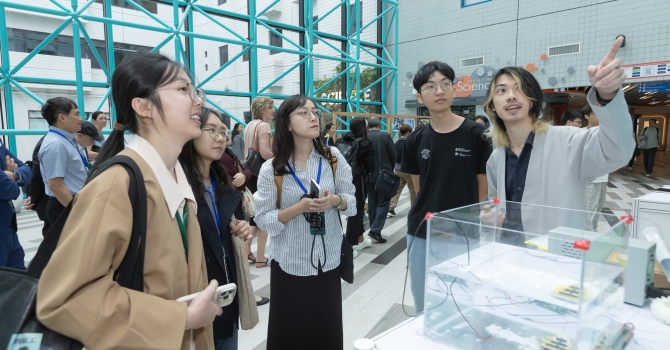Sustainability Dialogue with Alumni: To Explore and To Act
"The core of sustainability is the human itself…From Kaifong tour’s perspective, we think sustainability is a discussion process, where different opinions are welcome," Luke Tam, the co-founder of Kaifong Tour, explained. While sustainability has been mostly discussed from the environmental and social angles, Luke defined the topic from a more human perspective. He indicated that “thinking” and “feeling” are keys to maintaining a sustainable life, which could be further explained as “actively thinking and discussing the meaning of sustainability” and “taking care of our emotions and mental health”. Especially in a fast-paced city like Hong Kong, where people tend to suffer more from mental health issues, awareness of a sustainable lifestyle is essential. “We should always remember to look after ourselves and having this awareness is the start.”
Kaifong Tour, founded by Luke in 2016, is a social enterprise promoting sustainable tourism and community engagement in Hong Kong. To preserve local culture and strengthen Hong Kongers’ connection with the community, Kaifong Tour has organised tours to raise the awareness through storytelling and lead residents to explore their home city. Besides, it also partners with local educational institutes to nurture students’ understanding of local communities and sustainability, which also sustains Kaifong’s impacts.
Although the pandemic has strongly hit the tourism industry, Luke thinks positively about the future of sustainable tourism. “In the Post-COVID-19 era, travel agencies should leverage technology, for instance, Virtual Reality, to enhance the customer travel experience,” said Luke. In addition, more tourists are looking for good-quality and sustainable tours; in-depth products are in need. Luke suggested that mainstream agencies and local travel agencies could collaborate to provide more sustainable options. However, agencies should rebuild the industry step-by-step to ensure the quality of the tour. “We need to be patient to recover and always place quality at priority,” Luke admitted, “otherwise, it may lead to a bad reputation and image among the tourists.”
Looking back at his university days at HKUST, Luke appreciated having many resources and opportunities to explore his career path. He joined community service programmes and case competitions, where he gained work experience and business skills, which motivated him to explore more nonprofit sectors and become a social entrepreneur. At the end of the interview, Luke advised those who want to start their own career in sustainability: HKUST offers lots of opportunities. Seize the opportunity and think beyond! Life has so many possibilities so don’t limit yourself to one specific career. Calling himself an “Outlier” in HKUST, Luke sincerely encouraged students to live beyond social norms, start something different, and live more sustainably to prepare for future challenges and embrace uncertainty.
-
Besides the importance of being different, the other alumnus James Leung also emphasized the importance of taking action. Working as an Environmental Protection Officer at the Environmental Protection Department of HKSAR, James pointed out that actions are always the key to achieving goals. “Just do it, don’t overthink, because people always think they can predict the future, but in fact, you can predict much less than what you think you can.”
Looking back on his University days, James mentioned that his most significant takeaways from HKUST were strong presentation and communication skills. “The EVMT programme provided me with many opportunities to present, work in teams, and practise good communication. And those skills do connect the dots in the future which benefit my career,” said James. Like Luke, James also said he was not career-oriented back in University; he spent more time exploring himself instead. He went on exchange to France, Taiwan, and Mainland China, where he had lots of fun and learning. Those experiences equipped him with broader horizons and more social connections. By learning new languages and cultures, James adapted well to the new environment and made different friends worldwide.
In terms of “Sustainability”; James told us what it means to him. “There are some textbook definitions for sustainability, but it’s better to have your own thoughts instead of just following the definition,” said James. “For me, sustainability is about solving problems. What to do and how to solve the problem are the keys.” It could be applied to pressing environmental issues nowadays; after verifying the seriousness and urgency of those issues, it is essential that we brainstorm solutions and act swiftly. This somehow connects the importance of the actions mentioned earlier.
At the end of the interview, James also shared with us some environmental issues in Hong Kong and the role of the government in addressing them. Waste is one of the biggest environmental concerns we are now facing; there is an urgent need to reduce waste as landfills are nearly reaching their limits. Different ways, including hardware and software, have been implemented to tackle the issues. For example, facilities like T · PARK and Community Green Stations are in place to promote waste management and provide educational visits, and recycling schemes were launched as guidances for waste management. Though it may take some time to create a zero-waste Hong Kong, with the support from the government and more awareness from the residents, James still feels optimistic about the clean future of our beloved city.



